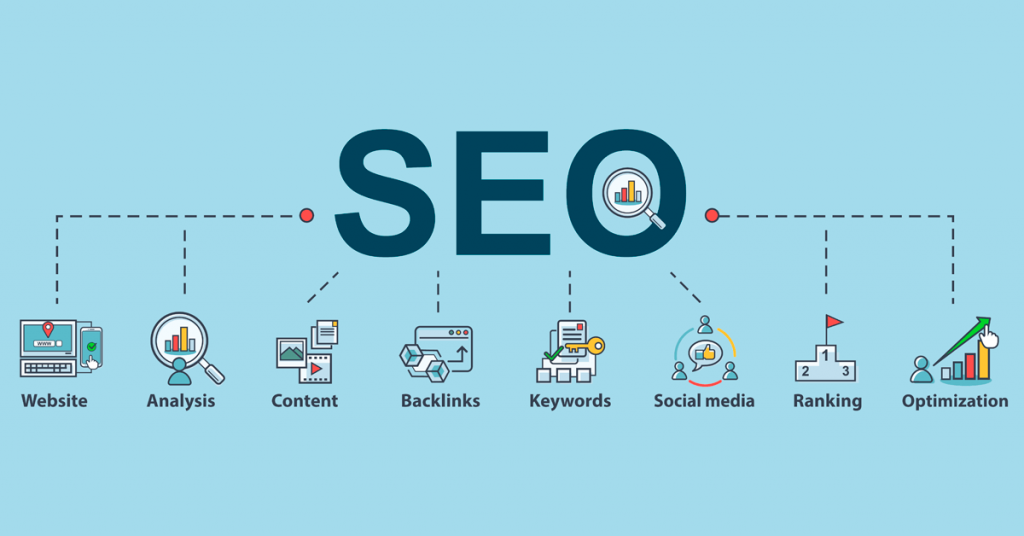
Search Engine Optimization (SEO) is a crucial component of digital marketing that focuses on optimizing a website’s visibility in search engine results pages (SERPs). The goal of SEO is to improve a website’s organic (non-paid) ranking for relevant search terms, ultimately driving more targeted and valuable traffic to the site.
Here’s a closer look at the key aspects of SEO:
Keyword Research: This involves identifying the keywords and phrases that potential customers are likely to use when searching for products, services, or information related to your business. Keyword research helps you understand user intent and target the right terms.
On-Page SEO: On-page optimization involves optimizing individual web pages to improve their relevance to specific keywords. This includes optimizing title tags, meta descriptions, headings (H1, H2, etc.), URL structure, and incorporating keywords naturally within the content.
Content Creation: High-quality, relevant, and valuable content is essential for SEO success. Creating informative blog posts, articles, guides, infographics, and videos can attract organic traffic and encourage backlinks from other reputable websites.
Technical SEO: This focuses on the technical aspects of a website that influence its search engine performance. It includes optimizing website speed, mobile-friendliness, site structure, URL optimization, schema markup, and more.
User Experience (UX): Search engines consider user experience as an important ranking factor. A well-designed and user-friendly website with easy navigation, fast loading times, and mobile responsiveness can positively impact SEO.
Backlink Building: Backlinks (links from other websites to yours) are an important ranking factor. However, it’s crucial to focus on quality over quantity. Building relevant, authoritative, and natural backlinks can boost your website’s credibility in the eyes of search engines.
Local SEO: For businesses targeting local customers, local SEO is vital. It involves optimizing your online presence to appear in local search results and on map listings. This includes setting up and optimizing Google My Business (GMB) profiles.
Social Signals: While the direct impact of social signals on SEO is debated, a strong social media presence can indirectly benefit SEO by increasing brand visibility, driving traffic, and potentially generating backlinks.
Analytics and Monitoring: Regularly monitoring and analyzing website traffic, rankings, and other key metrics can help you track the effectiveness of your SEO efforts and make informed decisions for optimization.
Algorithm Updates: Search engines like Google frequently update their algorithms to provide more accurate and relevant search results. Staying informed about these updates and adjusting your SEO strategies accordingly is essential.
Remember that SEO is a long-term strategy that requires ongoing effort and patience. Results might not be immediate, but with consistent and ethical optimization practices, you can improve your website’s visibility, increase organic traffic, and attract a relevant audience over time.
